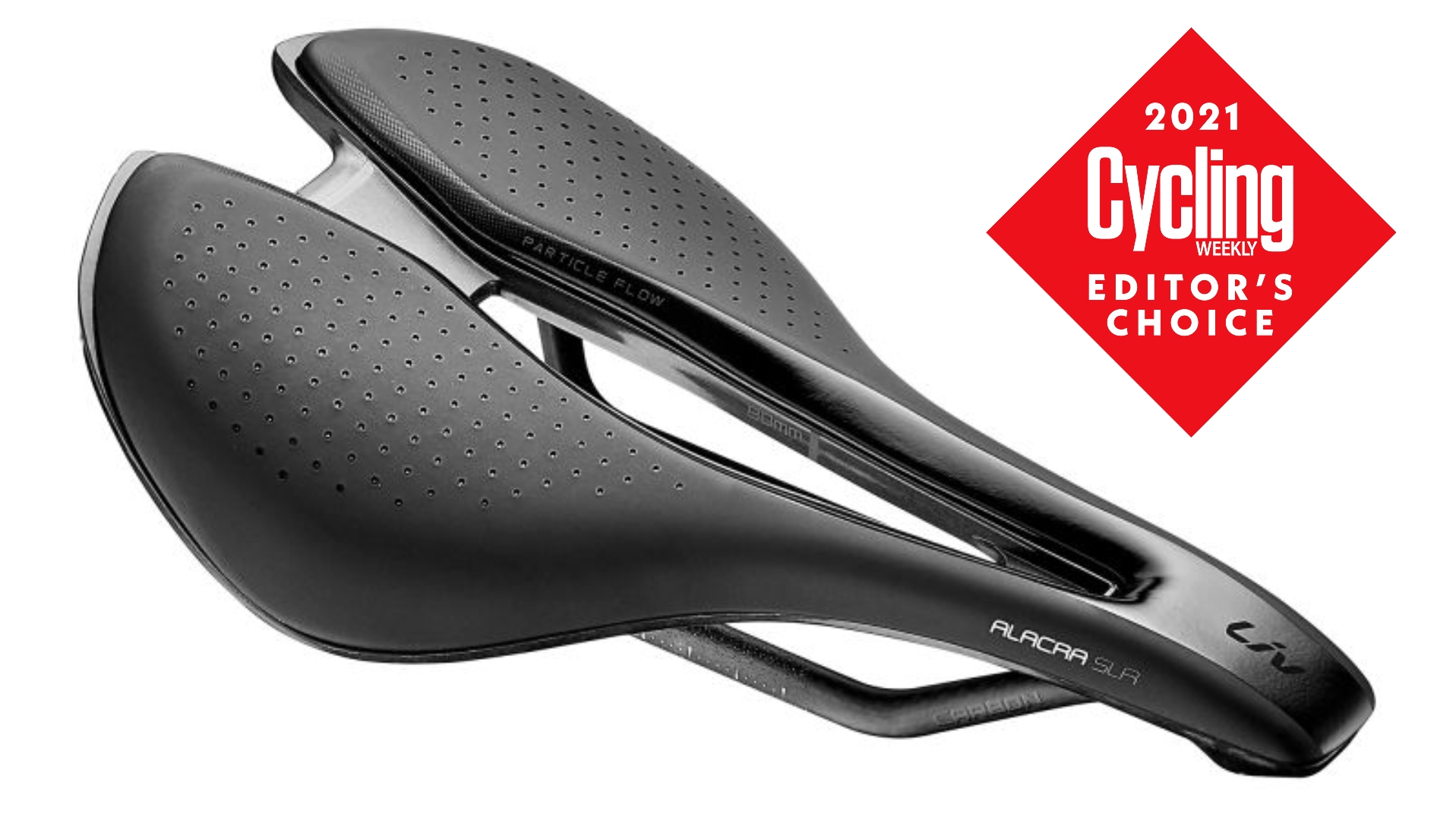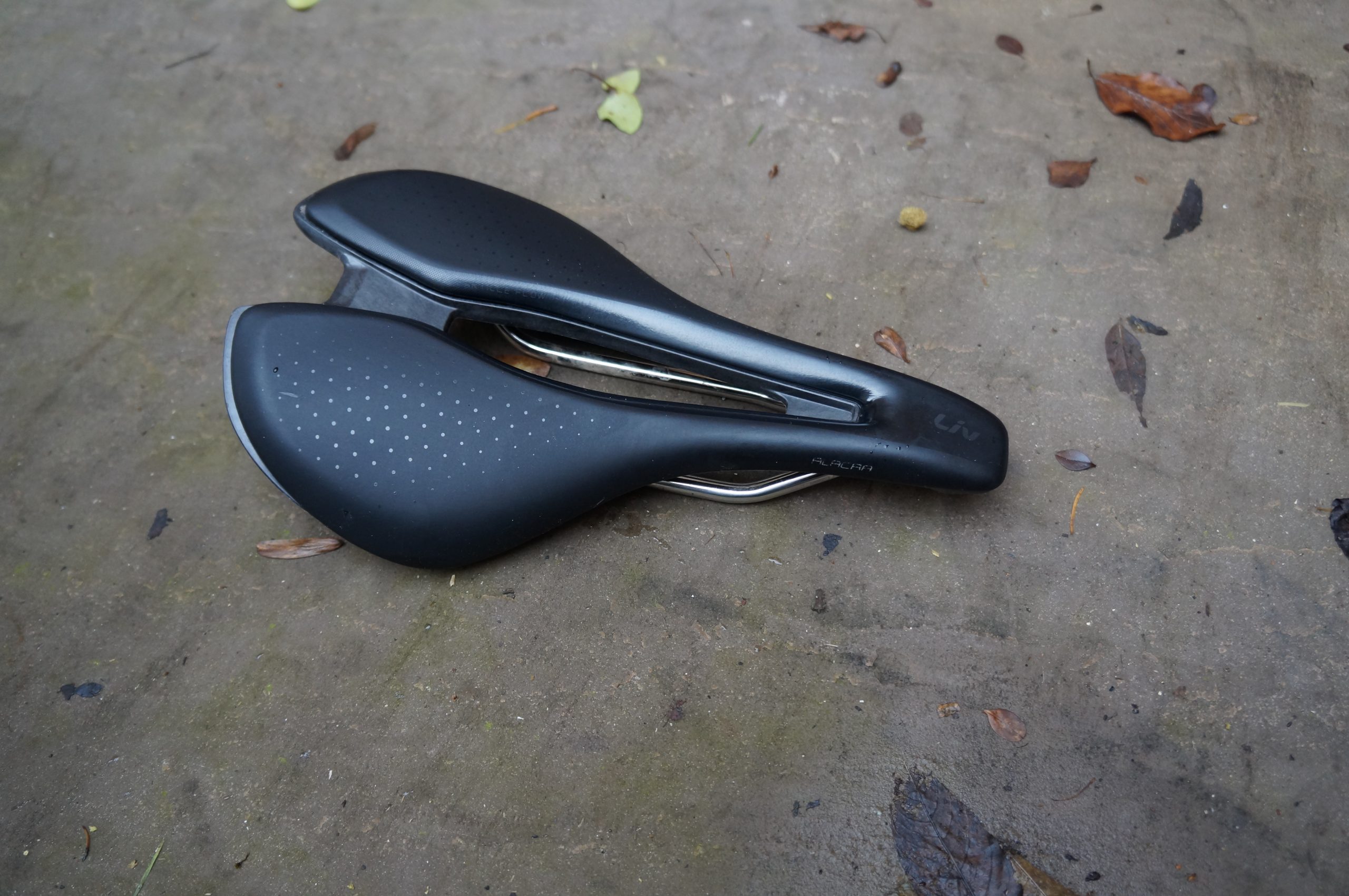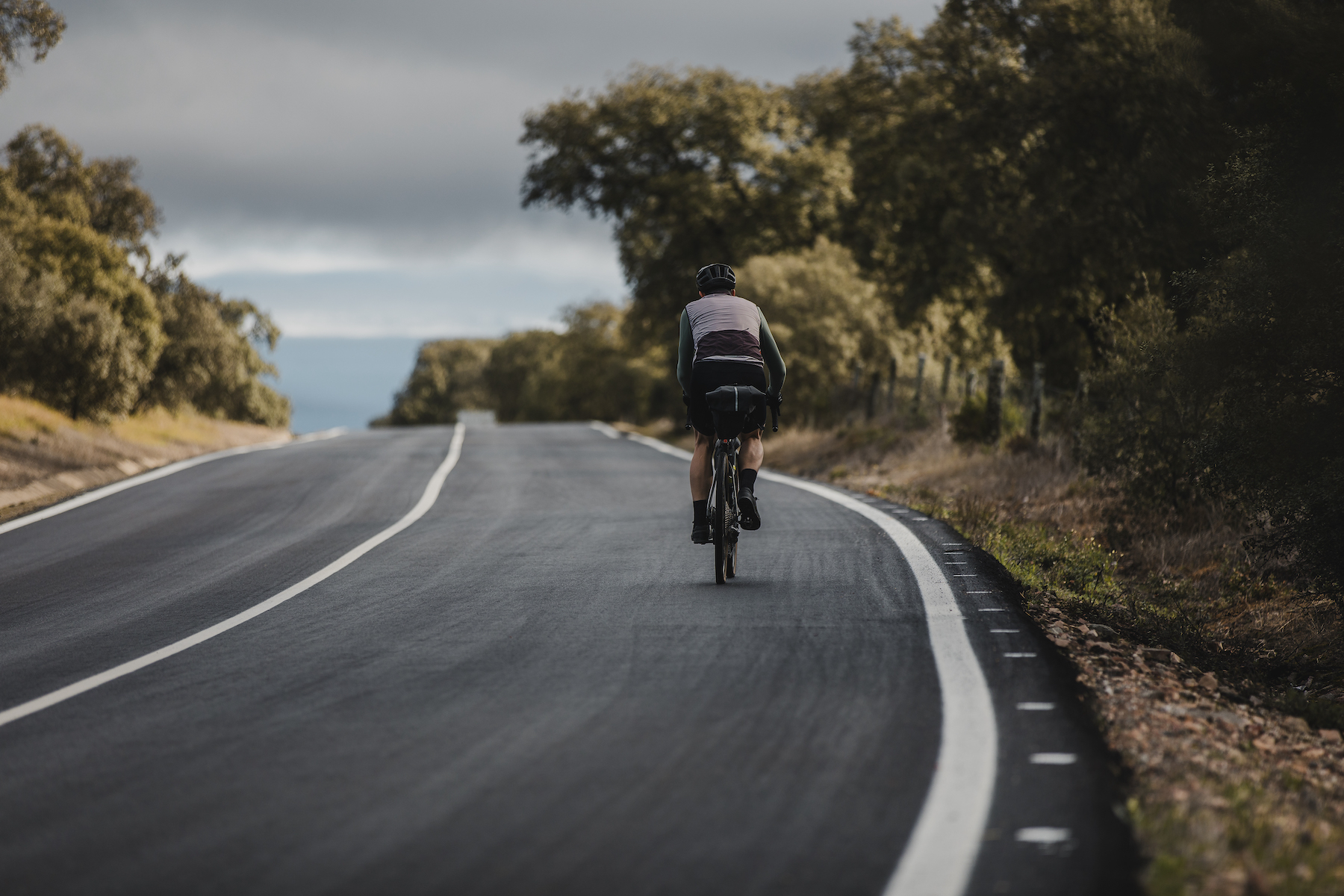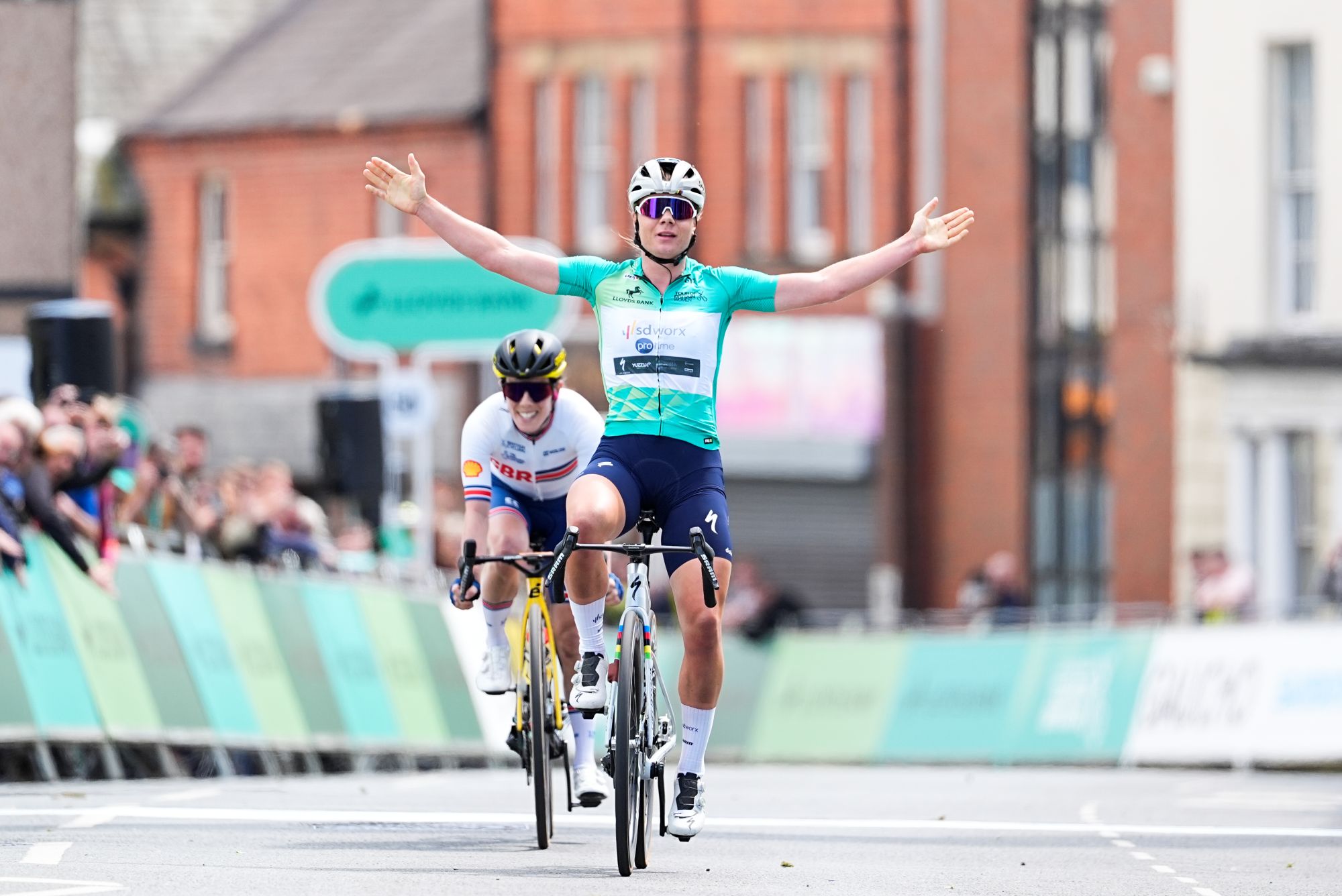Liv Alacra SL Saddle review
A comfortable option that will suit many different riding styles

A great saddle which I found comfortable when riding on the rivet, sitting back comfortably for easy rides, both on and off the road. The construction is light, considering the price tag, making this a competitive entry from Liv. The only width available is 155mm, and we'd like to see more options in the future.
-
+
Comfortable shape
-
+
Competitive price
-
-
Limited width options
You can trust Cycling Weekly.

Liv is not a brand whose saddle reputation precedes it. The Taiwanese sister brand to Giant has an own-brand version of pretty much everything required to ride – but it's better known for its bikes. This is a shame, really, as the saddles on offer here are actually rather good.
Join any women's-only ride and saddle discomfort is guaranteed to come up as a topic of conversation several times, which is perhaps why Liv has put so much energy into offering a comfortable solution: bad saddles put a lot of women off cycling before they have a chance to get hooked, so it's in the brand's interest to create bikes adorned with good saddles.
The Alacra is available in two guises: the SL and SLR. We have the former on test, which features a carbon composite shell and stainless steel rails, as opposed to the pure carbon of the 180g (claimed) SLR.

Liv Alacra: construction
The overall shape sits somewhere between the traditional, long-nosed saddle, and the 'noseless' designs that have become popular as of late, this particular perch measures 248mm. When putting an effort in, I felt very planted – exactly as you tend to when sitting optimally on a short-nosed saddle, but when moving around for climbs and descents I found the length meant I could always find support beneath me, something I have found lacking in the more time trial focused snub-nosed offerings.
The saddle curves slightly, waving from a high rear, to a dipped middle and slanting nose. Regardless if I was riding a road bike on tarmac or gravel bike off-road, this provided a comfortable level of support as I deposited my weight into the central groove.
The shape and size of the cut-out on a saddle is always extremely pivotal in my opinion of it, and I'm happy to report that in this case Liv got it just right (for me) – I experienced no unpleasant chafing or 'falling in' which can result from a relief channel which is either too small or too large. This is very much a case of personal preference though, if it helps I also get on well with the Specialized Romin Evo and Selle Italia SLR Lady Flow.
The brand says that the padding uses "high-elastic, free-flowing particles" which "reduce pelvic pressure by more than 20 per cent by distributing pressure across a broader contact area." This claim is a little empty without knowing what sort of saddle we're comparing to, to arrive at the 20 per cent reduction. However, it seemed to do its job alongside the Rebound foam inserts, as I didn't experience any pressure, even on four-hour rides.
Atop of the padding is a microfibre upper, which looks smart. The saddle comes in black only, which is a marked improvement from some of the white/purple/black models I've seen in the past from Liv, which may have blended well with certain bikes but weren't suited to paint jobs outside of the range.
Weight and price options
The carbon composite shell and stainless steel rails are a lower end option vs the SLR, but the 225g (claimed: 220g) weight means the price is lower at £69.99. For comparison's sake, the Specialized Power Expert retails at £110 and weighs 235g in the 155mm width. You could pay more to drop 40g in the SLR model, but this will be a minor performance enhancement. I've always maintained that when it comes to saddles, the most important element is finding a perch that supports you in creating a powerful, even pedal stroke. Low weight is just nice to have, and not worth breaking the bank over for most people.
My only criticism of this saddle is the limited run of widths. The test models measures in at 155mm, and there are no other options. My own sit bones come in at 169mm, which is why I typically ride a saddle at 168mm (it's best to ride a perch wider than your sit bones, but options are limited). Whilst I didn't experience any discomfort as a result, I think more options should be present here.

Thank you for reading 20 articles this month* Join now for unlimited access
Enjoy your first month for just £1 / $1 / €1
*Read 5 free articles per month without a subscription

Join now for unlimited access
Try first month for just £1 / $1 / €1
Get The Leadout Newsletter
The latest race content, interviews, features, reviews and expert buying guides, direct to your inbox!
Michelle Arthurs-Brennan the Editor of Cycling Weekly website. An NCTJ qualified traditional journalist by trade, Michelle began her career working for local newspapers. She's worked within the cycling industry since 2012, and joined the Cycling Weekly team in 2017, having previously been Editor at Total Women's Cycling. Prior to welcoming her first daughter in 2022, Michelle raced on the road, track, and in time trials, and still rides as much as she can - albeit a fair proportion indoors, for now.
Michelle is on maternity leave from April 2025 until spring 2026.
-
 'This is the marriage venue, no?': how one rider ran the whole gamut of hallucinations in a single race
'This is the marriage venue, no?': how one rider ran the whole gamut of hallucinations in a single raceKabir Rachure's first RAAM was a crazy experience in more ways than one, he tells Cycling Weekly's Going Long podcast
By James Shrubsall Published
-
 Full Tour of Britain Women route announced, taking place from North Yorkshire to Glasgow
Full Tour of Britain Women route announced, taking place from North Yorkshire to GlasgowBritish Cycling's Women's WorldTour four-stage race will take place in northern England and Scotland
By Tom Thewlis Published
-
 Positive signs for UK bike industry as Halfords cycling sales grow
Positive signs for UK bike industry as Halfords cycling sales growRetailer admits that the impact of Donald Trump's tariffs remains to be seen
By Tom Thewlis Published